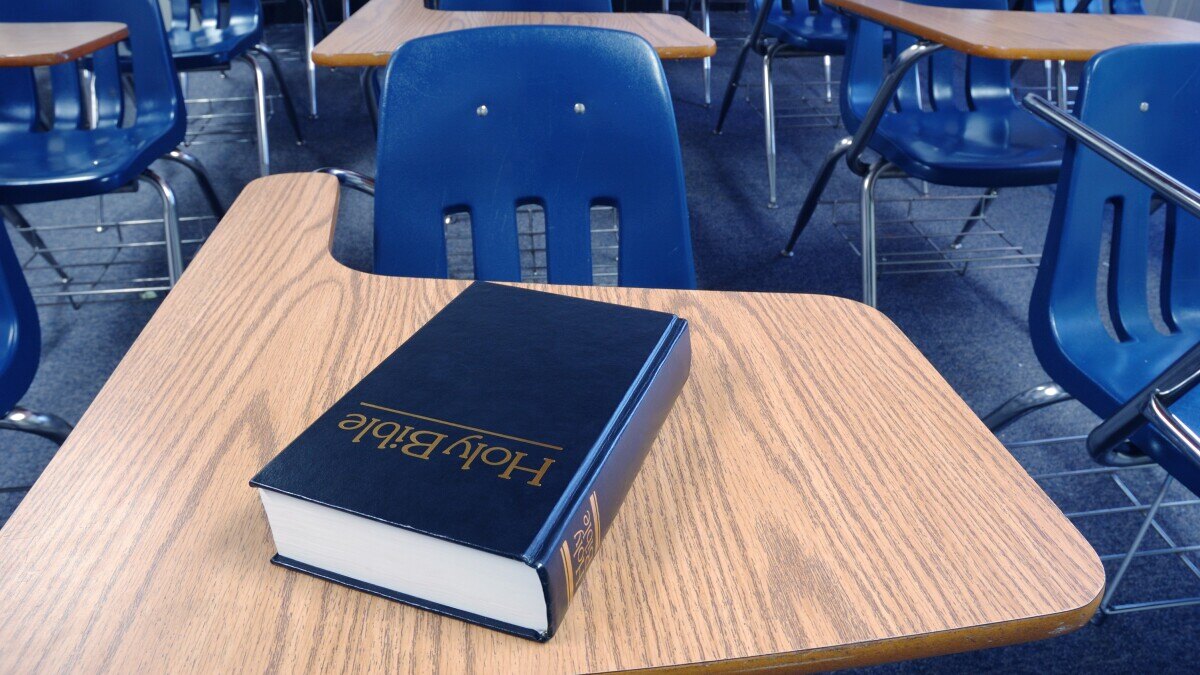What to Know:
-
64% of Texans back adding religious stories to school curricula, per a July 2024 poll.
-
58% believe these stories aid in understanding Western culture.
-
25% worry about potential religious indoctrination in schools.
-
House Bill 1605 (2023) requires new curriculum materials, including stories like the Good Samaritan.
-
Support is highest among Black (75%) and Hispanic Texans (59%).
A recent poll conducted by Texas Public Policy Foundation reveals strong support among Texas voters for incorporating religious stories into educational materials. This growing approval points out the significant role that religious narratives continue to play in shaping the cultural and educational landscape of Texas. The findings suggest a widespread belief in the value of religious content as part of a well-rounded education, reflecting the state's deep-rooted connection to faith and tradition.
Public Opinion on Religious References
Support for religious content in school curricula extends beyond a preference for traditional values. The poll found that 58% of Texans believe religious stories can help students better understand the development of Western culture, art, and history (Texas Public Policy Foundation, 2024). This sentiment underscores the idea that religious narratives are integral to a comprehensive education, providing students with insights into the cultural and historical foundations of Western society .
|
The Opposing Side 25% of respondents expressed concerns about the potential for religious indoctrination in public schools (Texas Public Policy Foundation, 2024). This minority view highlights ongoing debates about the separation of church and state. The Texas Public Policy Foundation emphasizes the importance of balancing educational content to ensure it informs rather than promotes specific religious beliefs. |
Recent Legislation & Curriculum Changes
The issue of religious content in schools has gained prominence following the Texas Legislature's passage of House Bill 1605. This bill, passed in 2023, mandates the Texas Education Agency to develop new curriculum materials that meet grade-level standards for quality and suitability (Texas Public Policy Foundation, 2024).
As a result, the new materials being integrated into the state's educational system include examples of religious stories, such as the Good Samaritan and the Golden Rule. These stories aim to teach values like service to others and moral behavior while avoiding any promotion of specific religious beliefs.
The Texas Public Policy Foundation notes that these inclusions are designed to enhance students' understanding of historical and cultural contexts (Texas Public Policy Foundation, 2024). By integrating religious stories into the curriculum, the goal is to provide students with a more holistic education that reflects the values and beliefs that have shaped Western society.
Demographic Breakdown of Support
Support for including religious references in school curricula varies across different demographic groups, with particularly high approval among Black and Hispanic Texans. The poll found that 75% of Black Texans and 59% of Hispanic Texans support the inclusion of historical religious stories in educational materials (Texas Public Policy Foundation, 2024). This strong support among minority communities indicates that the perceived benefits of religious content in schools extend across racial and ethnic lines .
The Texas Public Policy Foundation suggests that this support reflects a broader desire for educational materials that resonate with the values and traditions important to these communities (Texas Public Policy Foundation, 2024). The inclusion of religious content is seen as a way to ensure that the educational system in Texas reflects the diversity of its population and the cultural heritage of all Texans.
Wrap Up
The strong support for religious content in Texas school curricula, as revealed by the July 2024 WPA Intelligence poll, underscores the significant role that religious narratives continue to play in education. With 64% of Texans in favor of integrating historical religious stories into school materials, there is clear evidence that many voters see these stories as essential to a well-rounded education. The Texas Public Policy Foundation's findings suggest that religious content can provide valuable insights into the development of Western culture, helping students to understand the values that have shaped the world.





